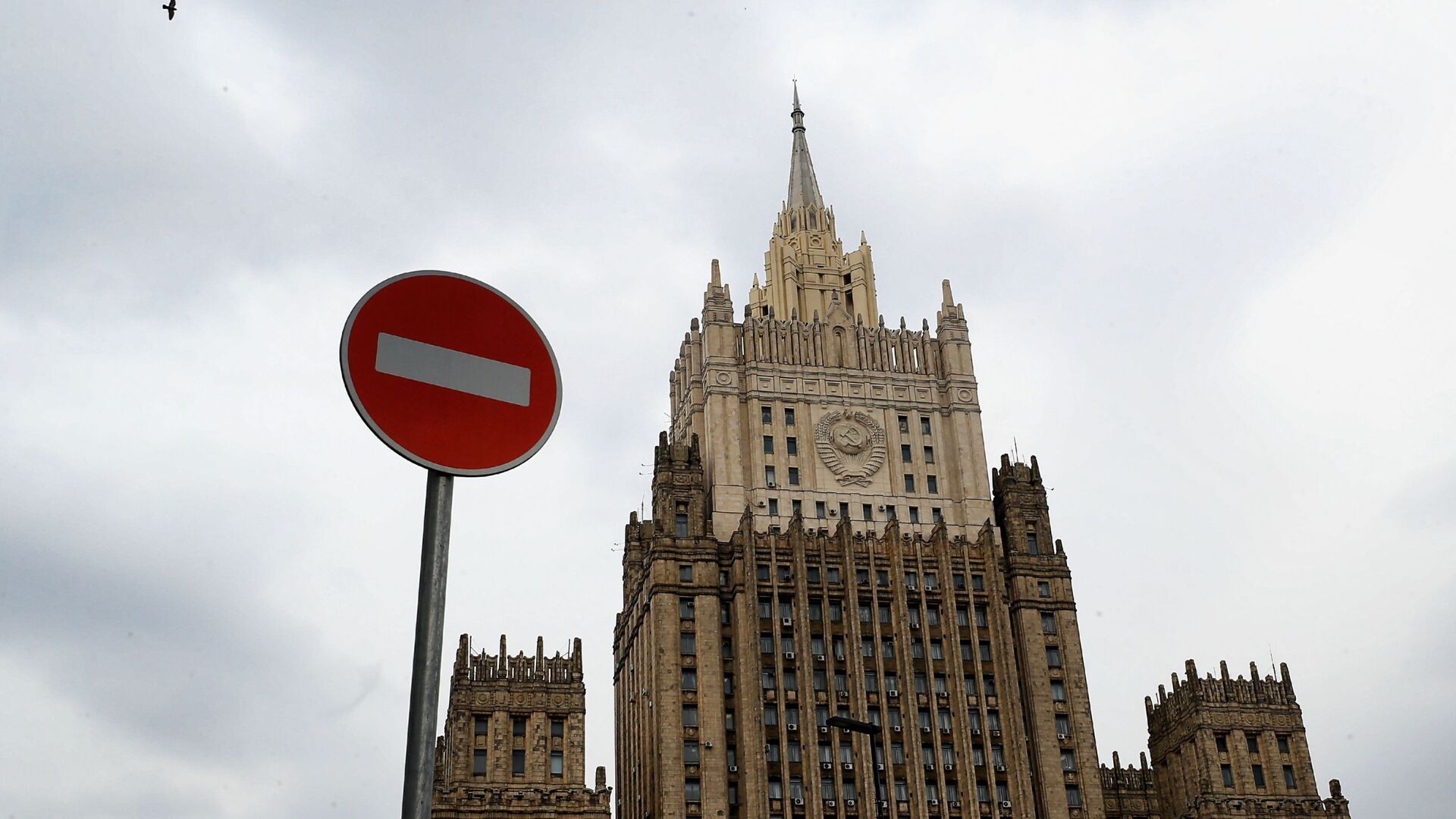Moscow Urges Kosovo to Stop Provocations, Respect Serbs' Rights, Russian Foreign Ministry Says
18:00 GMT 31.07.2022 (Updated: 21:02 GMT 31.07.2022)

© Sputnik / Anton Denisov
/ Subscribe
The spokeswoman characterized the annulment of Serbian documents as "unreasonable" discrimination that serves as "another step toward the expulsion of the Serb population from Kosovo," and an attempt to provoke a response from Belgrade.
Russian Foreign Ministry spokeswoman Maria Zakharova called on authorities in Pristina and their US and EU puppet masters to "halt provocations and respect the rights of Serbs in Kosovo."
"The Kosovar leaders know that the Serbs will not remain indifferent when it comes to a direct attack on their freedoms, and they deliberately escalate tensions in order to provoke a military scenario. Of course, Belgrade is at the forefront of the attack, which the West seeks to 'neutralize' with Kosovar Albanian hands," Zakharova said.
The spokeswoman added that the escalation of tensions is evidence of the failure of the Brussel's mediation mission in the breakaway territory, and a preview of what would await Belgrade if it joins the EU.
Earlier, local outlets and social media reported that air raid sirens had been turned on in northern, Serb-populated areas of Kosovo, with people erecting makeshift barricades and sporadic gunfire heard near the administrative border with Serbia.
In the north of Kosovo and Metohija, the first shots are heard. pic.twitter.com/JlwNoEwYGY
— ДражаМ (@DrazaM33) July 31, 2022
Kosovo Police said they did not have any official information about injuries to citizens or officers, and called on media and residents not to become victims of fake news.
Photos posted to social media showed barricades set up at roads using trucks and other vehicles.
In the town of Leposavic, church bells were recorded ringing non-stop.
In a television address earlier in the day, Serbian President Aleksandar Vucic announced that police forces from the self-proclaimed Kosovo Republic were planning a military operation against Serbs living in the breakaway's northern regions. He emphasized that Belgrade would try to keep the peace, and asked his fellow countrymen and women not to succumb to provocations which could be used by regime in Pristina to portray themselves as the victims of 'Serbian aggression."
"All I can say is that we will ask and ask for peace, but I will tell you: there will be no surrender and Serbia will win. If they try to start persecuting Serbs, mocking Serbs, killing Serbs, Serbia will win," Vucic warned.
A day earlier, Serbian Foreign Minister Nikola Selakovic characterized Kosovo authorities' push to annul documents and license plate issued by the Serbian state as an attempt to "create hell" for Serbs living in the breakaway.
The bridge dividing Kosovska Mitrovica into Serbian (northern) and Albanian (southern) has been closed. pic.twitter.com/9pl7LtdWH3
— ДражаМ (@DrazaM33) July 31, 2022
On Sunday evening, Serbia's Defense Ministry rejected media reports that Belgrade had deployed troops into Kosovo region, and asked residents not to spread false claims about clashes between Serbian forces and the Kosovo police units, saying these false reports were being spread by Pristina.
"The Defense Ministry informs that the Serbian military has not crossed the administrative line and not entered the territory of Kosovo and Metohija in any way," the ministry said in a statement, referring to the twin regions which make up Albanian Kosovar-administered territory.
Kosovo police announced Sunday evening that they had closed the Brnjak and Jarinje crossings to all traffic, with the presence of a reinforced police unit reported to be stationed at the bridge over the Ibar River in Kosovka Mitrovica.
Decades Old Crisis
In 1999, the armed confrontation between Muslim Albanian separatists from the Kosovo Liberation Army paramilitary force and Serbian army and police forces in Kosovo sparked NATO intervention in the form of a 78-day bombing campaign.
NATO then deployed ground troops to the region, claiming that the deployment was a 'peacekeeping' mission aimed at preventing a humanitarian catastrophe. In 2004, Kosovar Albanians began a campaign of ethnic cleansing, instigating the destruction of Serbian historical and cultural monuments and landmarks, and forcing Serbs to evacuate their homes, driving them to the province's northern areas. In 2008, Kosovo unilaterally declared independence from Serbia. Belgrade, Russia and many other countries have refused to recognize the breakaway.



